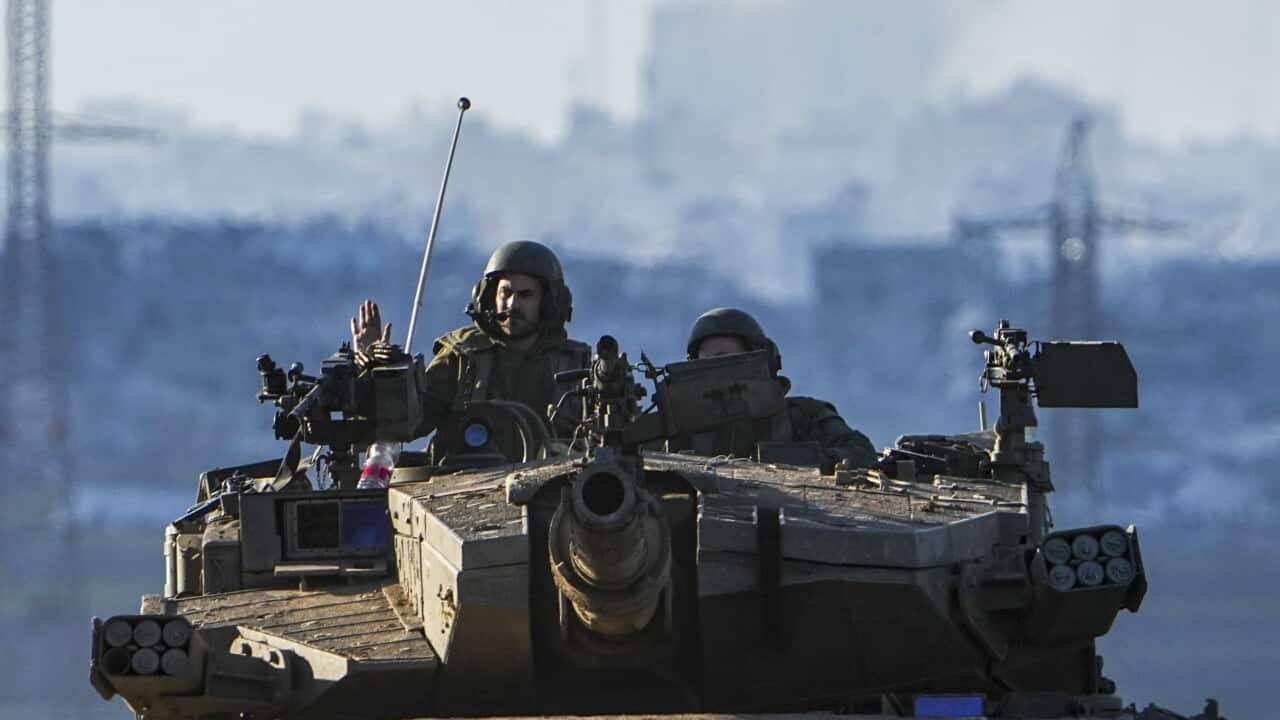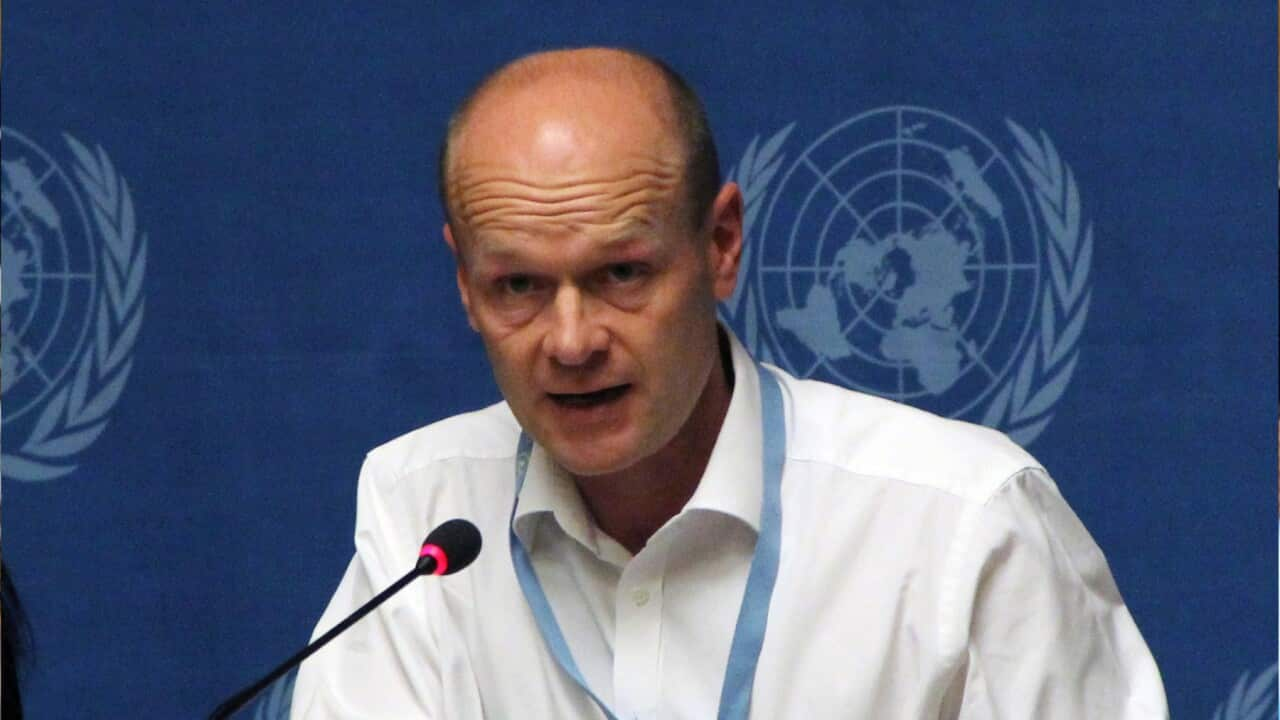Key Points
- Israel announced a major invasion of Gaza on Wednesday.
- Benjamin Netanyahu said areas of Gaza will be taken and 'added' to Israeli 'security zones'.
- Hamas said it will not respond to Israel's counter proposal for ceasefire in Gaza.
Hamas decided not to respond or engage with Israel's counter proposal for a ceasefire in Gaza, an official told Reuters on Wednesday, affirming it is committed to the mediators' plan instead.
Israel said on 29 March it conveyed to the mediators a counter-proposal in full coordination with the United States, after Hamas agreed to a proposal it received from mediators Egypt and Qatar.
Earlier, Israel announced a major expansion of military operations in Gaza, saying large areas of the enclave would be seized and added to its security zones, accompanied by large-scale evacuations of the population.
Israeli Prime Minister Benjamin Netanyahu said troops were seizing an area he called the Morag Axis, a reference to a former Israeli settlement once located between the cities of Rafah and Khan Younis in the south of the Gaza Strip, some 3-4km from the southern border.
He said the move, which would cut off Rafah from Khan Younis, would give Israel control of a second axis in southern Gaza in addition to the so-called 'Philadelphi Corridor' running along the border with Egypt, which Israel sees as a key line preventing the smuggling of weapons into Gaza.
Separately, the Israeli military said troops had completed the encirclement of the Tel al-Sultan area near Rafah and killed dozens of militants.
But there was no sign of an end to the operation and the head of the Israeli military, Lieutenant General Eyal Zamir, said it would continue "at a deliberate and determined pace".
Earlier on Wednesday, Israeli defence minister Israel Katz announced troops would be widening their invasion in Gaza to clear out militants and infrastructure "and seize large areas that will be added to the security zones of the state of Israel".
The Israeli military had already issued evacuation warnings to Palestinians living in some southern districts and Palestinian radio reported the area around Rafah was almost completely empty following the evacuation orders.
Jonathan Whittall, the top United Nations aid official for Gaza and the West Bank, said: "As of today, 64 per cent of Gaza is under active forced displacement orders or falling within the so-called 'buffer zone'."
"Nowhere and no one is safe in Gaza."

Palestinians in the Jabalia Refugee Camp in northern Gaza are struggling to survive their daily lives in makeshift tents among the rubble of buildings destroyed by Israeli attacks. Source: Getty / Saeed Mohammed / Anadolu
Reuters video of the aftermath of the strike showed blood on a floor as rescue workers removed bodies on stretchers.
At the site of another strike in Khan Younis, Rida al-Jabbour held up a tiny shoe and pointed at a blood-spattered wall as she related how a neighbour had been killed along with her three-month-old baby.
"From the moment the strike occurred, we have not been able to sit or sleep," she said, describing how rescue workers were unable to separate the remains of those killed.
Katz's statement did not make clear how much land Israel intended to seize or whether the move represented a permanent annexation of territory, which would heighten pressure on a population already living in one of the most crowded areas in the world.
According to Israeli rights group Gisha, even before the operation, Israel had already taken control of some 62 square kilometres or around 17 per cent of the total area of Gaza, as part of a buffer zone around the edges of the enclave.
Israeli leaders have said they plan to facilitate 'voluntary departure of Palestinians from Gaza', after US President Donald Trump called for it to be permanently evacuated and redeveloped as a coastal resort under US control.
"It seems like Netanyahu will not stop his war on Gaza until we are displaced," said Amer al-Farra, who said he had been displaced eight times during the war. "With God's will we will remain steadfast."
Israel resumed airstrikes in Gaza on 18 March, after two months of relative calm during a US-backed truce to allow the exchange of hostages for Palestinian captives in Israeli jails.
Israel has killed over 1,000 Palestinians since and has also cut off aid to the enclave, saying much of it was being taken by Hamas.
UN secretary-general António Guterres condemned Israel's reported killing of more than 1,000 people since Israel called off the deal, his spokesperson Stéphane Dujarric said on Wednesday.
Guterres is also increasingly concerned about inflammatory rhetoric on the seizure of land by Israel.
"All parties must comply fully with international law at all times. Civilians must be respected and protected. The denial of lifesaving aid must end," Dujarric told reporters.
Efforts led by Qatari and Egyptian mediators to get talks aimed at ending the war back on track have so far failed to make progress and the military's return to Gaza has fuelled protests in Israel by families and supporters of some of the hostages.
As the operation in Gaza has escalated, Israel has also hit targets in south Lebanon and Syria, with a strike on a Hezbollah commander in a southern suburb of Beirut on Tuesday that further strained fraying ceasefire agreements which largely halted fighting in January.



